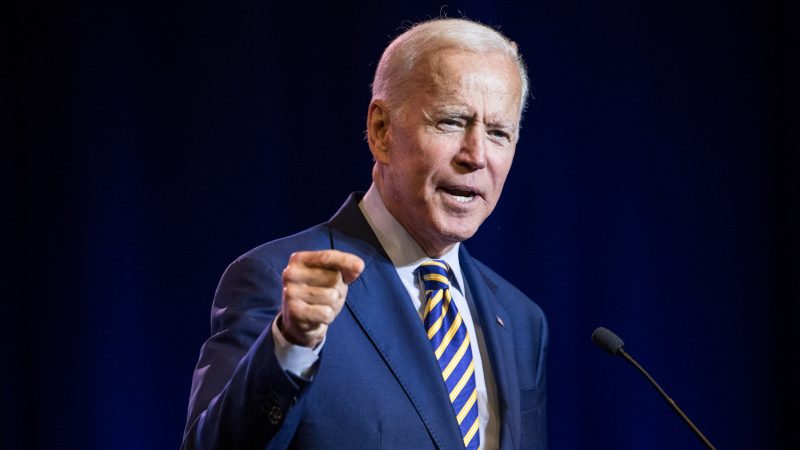
The Labour leadership has warmly embraced “Bidenomics” as the inspiration and proof point for its own economic and industrial plans in the UK. Yet their praise for US policy is not one shared by American voters.
Recent polling here in the US shows that six out of ten people disapprove of the President’s performance and have a deeply pessimistic view about their country’s economic future. When asked if Biden or Donald Trump would be better in charge of the country’s economy, more voters go for Trump.
US voters are pessimistic about the economy – despite its strong performance
This is grim news for an administration going into an election year and particularly because it appears to fly in the face of independent evidence on the performance of the US economy. Data published in the last few weeks shows the US continuing to grow strongly and well above other G7 countries, real wages are rising and unemployment remains under 4%.
Perhaps most frustrating for the Democrats is that voters appear not to give much credit to the centrepiece of Biden’s economic policy – the huge stimulus package to boost growth and invest in infrastructure and green technologies.
In fact, polling suggests at least a third of American people haven’t even heard of the Inflation Reduction Act or other significant measures introduced by the administration as part of what, without doubt, represents a major change in US economic policy of the previous three decades.
This is the Bidenomics that has won praise and admiration from Labour’s top team and helped to shape the party’s own £28bn green prosperity plan. Keir Starmer used his main conference speech in Liverpool in October to applaud the action being taken in the US to invest in the green transition, while Rachel Reeves’s speech even borrowed Joe Biden’s phrase that growth is created “from the bottom up and the middle out”.
So what does the lack of public support for Biden’s economic policies mean for Labour and its adoption of Bidenomics, and what lessons can Starmer and Reeves learn as they fine-tune their economic plans in advance of the forthcoming election in the UK?
Labour should look for some quick wins to show early impact
One key change has already been made – to phase the £28bn investment over a longer period than originally planned and prioritise early reform of the planning system to prevent bottlenecks in the delivery of major projects. This shift appears to have been a decision taken as a direct result of an analysis of the US experience.
There are certainly concerns in the US that while significant sums of public money have been flowing in the direction of some of the biggest companies in the form of corporate subsidies there has, as yet, been little tangible impact for voters to see.
This will come. But the four-year electoral cycle can exact a cruel penalty on long-term economic decision-making – and Starmer and Reeves could do worse than to think more deliberately about how their plans can include some quick wins to demonstrate early impact.
Effective communication of Labour’s economic plans will also be essential to ensure voters clearly understand the rationale and long-term benefits of the planned public investment. This will be particularly important over the next few months as its plans come under sustained attack from a Tory Party determined to paint Labour as a party not to be trusted with spending public money.
The party must not ignore immediate issues facing households
But perhaps the greatest lesson of the Biden experience is the need to ensure that the focus on long-term economic change does not obscure the need to address the immediate issues that families and households face in the here and now.
Public anger over inflation appears to be the overwhelming driver of US opinion on the economy, and voters are simply not yet willing to forgive or to listen to anything else. Even with falling inflation, Biden himself has failed to convince people that he’s the man to trust on the issue.
Unlike the Democrats, Labour has avoided the public blame for inflation over the last two years, and the party’s plans are vital to boost the sluggish British economy. But, whatever happens here in the US over the next few months, we may hear a lot less from Starmer’s team about the winning formula of Bidenomics.




More from LabourList
Welfare vote: ‘Here are the failures it reveals – and three faint silver linings’
Welfare vote: Which Labour MPs voted against bill or backed new amendment?
‘Welfare reforms still mean a climate of fear. Changes are too little, too late’